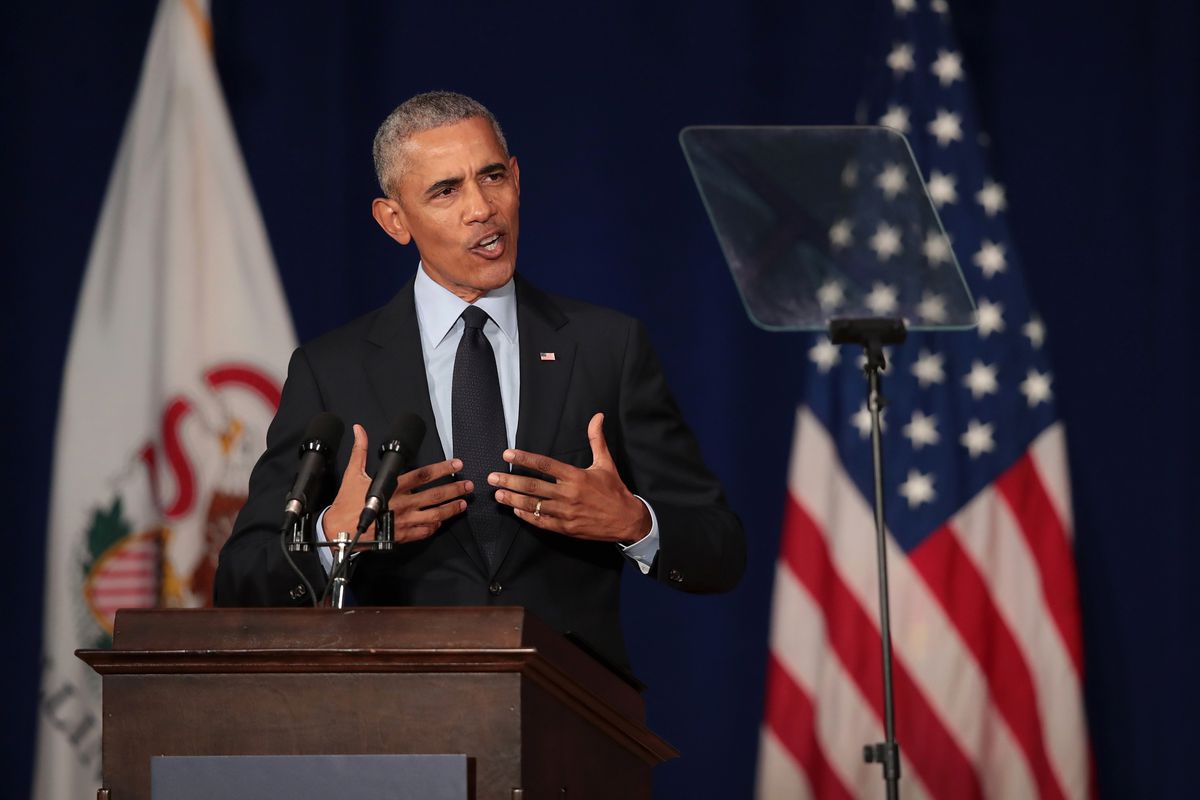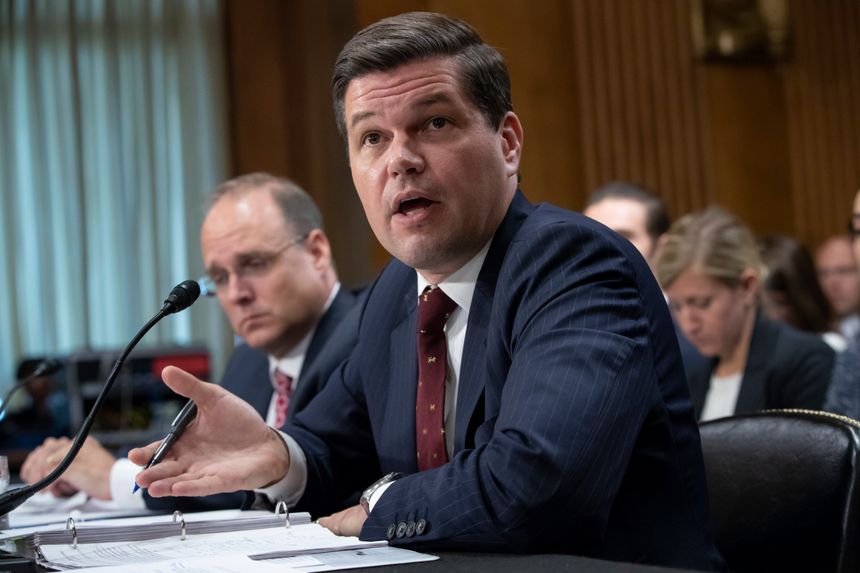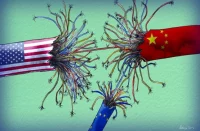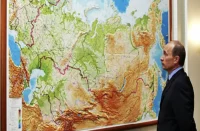Seventh. Washington’s anti-Russian policies under all administrations reflected the imperatives of this internal complex crisis. Thanks to the end of the Cold War and the collapse of the USSR, which created the illusion of a world without alternatives on the level of ideas and models of development, the West received a kind of “second wind”. Its resource was exhausted for 30 years, during which the trend towards multipolarity was consolidated, the symbols of which were the rise of China and Russia’s restoration of its status as a global power which manifested itself in the most sensitive for the self-consciousness of Western elites sphere of power politics (Crimea, Donbass and Syria).
In this regard, under Obama the bet was made on the creation of two trade and economic blocks in the West and the East – the Transatlantic Trade and Investment Partnership and the Trans-Pacific Partnership which would solve the problem of Western dominance in global politics, economy and finance in the new historical conditions, while containing Russia and China. Something in the spirit of the strongholds of the West was being thought of. These plans were abandoned by the Trump administration. Momentum was largely lost; Beijing ramped up its efforts in the APAC, pushing for a Comprehensive Regional Economic Partnership under its aegis and backed by ASEAN, while in Europe the credibility of “American leadership” was undermined: there the EU-China Investment Agreement was initialed at the end of November 2019. The West’s sanctioned unity on anti-Russian grounds in connection with the events in Ukraine serves as a kind of revenge by Washington for Trump’s aforementioned geopolitical “blunders”.
 With the arrival of Biden in the White House, the Americans began to “repair” their informal global empire in an effort, no longer relying on the “automatism” of expanding their control over the world (the fallacy of such a primitive calculation was indirectly recognized even by Kissinger), by more aggressive containment of China and Russia to once again achieve this “second wind”, the reconstruction of their geostrategic strongholds in the Euro-Atlantic and APAC. The stakes in Western politics have risen sharply and have become, without exaggeration, existential in nature. It has come to the realization that the West is faced with the prospect of a “war on two fronts”, which Germany failed to endure twice – under the Kaiser and Hitler. Now Western elites found themselves united – with Germany and Japan under American occupation and political control, though in a world that had largely become multipolar.
With the arrival of Biden in the White House, the Americans began to “repair” their informal global empire in an effort, no longer relying on the “automatism” of expanding their control over the world (the fallacy of such a primitive calculation was indirectly recognized even by Kissinger), by more aggressive containment of China and Russia to once again achieve this “second wind”, the reconstruction of their geostrategic strongholds in the Euro-Atlantic and APAC. The stakes in Western politics have risen sharply and have become, without exaggeration, existential in nature. It has come to the realization that the West is faced with the prospect of a “war on two fronts”, which Germany failed to endure twice – under the Kaiser and Hitler. Now Western elites found themselves united – with Germany and Japan under American occupation and political control, though in a world that had largely become multipolar.
Eighth. In the post-war period, an aggressive, essentially imperial foreign policy philosophy and tradition with its “grand strategies” had developed in the United States. This time a kind of “Young Turks” from political science (such as Jake Sullivan, Wess Mitchell and others from the notorious “Marathon Initiative”) came “to the helm” and blamed the previous generation for having “lost out” to Beijing and Moscow (including in Ukraine). They came with their own ideas on how to improve the situation and a corresponding “grand strategy”. W. Mitchell is the author of the strategy to “avoid a war on two fronts” (in his terminology it is a problem of “simultaneity” of two wars), because American resources do not allow to conduct such a war. It is supposed to “fight” Russia in Ukraine in order to stop its “expansion” in the western direction (apparently, this means strengthening our position in the post-Soviet space and relations with the EU, especially with Germany). That is to start with a weaker opponent – to force Moscow to turn to the East, to penetrate into the development of Siberia and the Far East and not even to object to the supply of Russian arms to India.

Obviously, this strategy is being pursued by the Biden administration. According to Mitchell himself, he proposed this idea to the Pentagon under Trump in the fall of 2020, after resigning as assistant secretary of state a year earlier. In the course of Russia’s special military operation in Ukraine, it has already been openly stated that the goal of the West is to inflict a “strategic” or even military defeat on Russia in Ukraine, which will, with varying degrees of probability, destabilize and “soften” it in terms of its willingness to accommodate Western interests.
Ninth. The situation has been characterized as a “trap-in-trap” or fatal strategy versus a trivial one. Washington believed that, as in the case of Afghanistan, it would provoke Russia into invading Ukraine, where it would bog down or be forced to withdraw without achieving its stated goals. At the same time, the West itself found itself provoked by sanctions pressure “from hell”, undermining the foundations of its global dominance (the system is losing its basic characteristic – universality which was present even during the Cold War, which indicates a completely new quality of confrontation and the very threat to the West), as well as revealing the scale of trade and economic and monetary interdependence, primarily in the energy sector, in terms of mineral fertilizers and food supplies. “Payback” from anti-Russian sanctions leads to higher inflation and the cost of living and, consequently, socio-political tensions in Western countries, providing Russia with an effective means of influencing their internal state.
The Western blitzkrieg against Russia has failed. As a result of its “banal” gambit (like Germany in World Wars I and II) the West finds itself in a state of war on two fronts, when China due to the West’s bogging down in the conflict with Russia actually gets a free hand to solve the problem of Taiwan by force – the main factor of its containment by the Americans.
Thus, the prospect of the collapse of the entire postwar foreign policy structure of the United States and Europe, including the G7, NATO, EU, other political-military alliances, IMF, IB, WTO and other institutions is clearly indicated. Accordingly, for the West itself, the UN system is growing in importance. Moreover, the West is in a position of weakness, forced to appeal to international law, which additionally ensures the UN’s sustainability for the future. The format of G20 summits also serves as the last reserve of the existing world order and as a means of its smooth transformation. The alternative is chaos, that is, lack of control, which is a nightmare for Western elites and, above all, for Americans, who are lost in any situation they do not control, even if this control is illusory (a feature of the postwar American political and strategic culture).














Comments